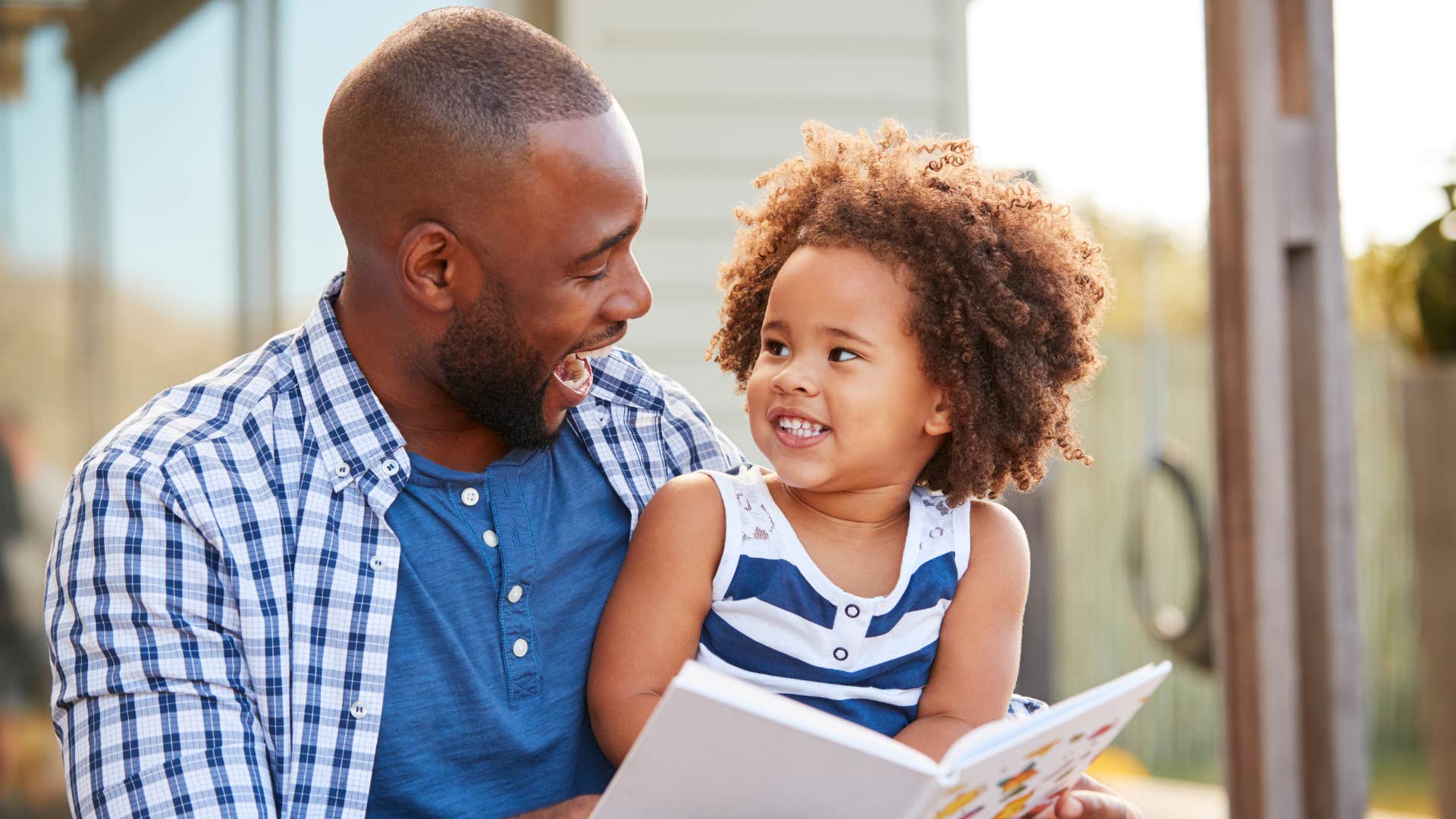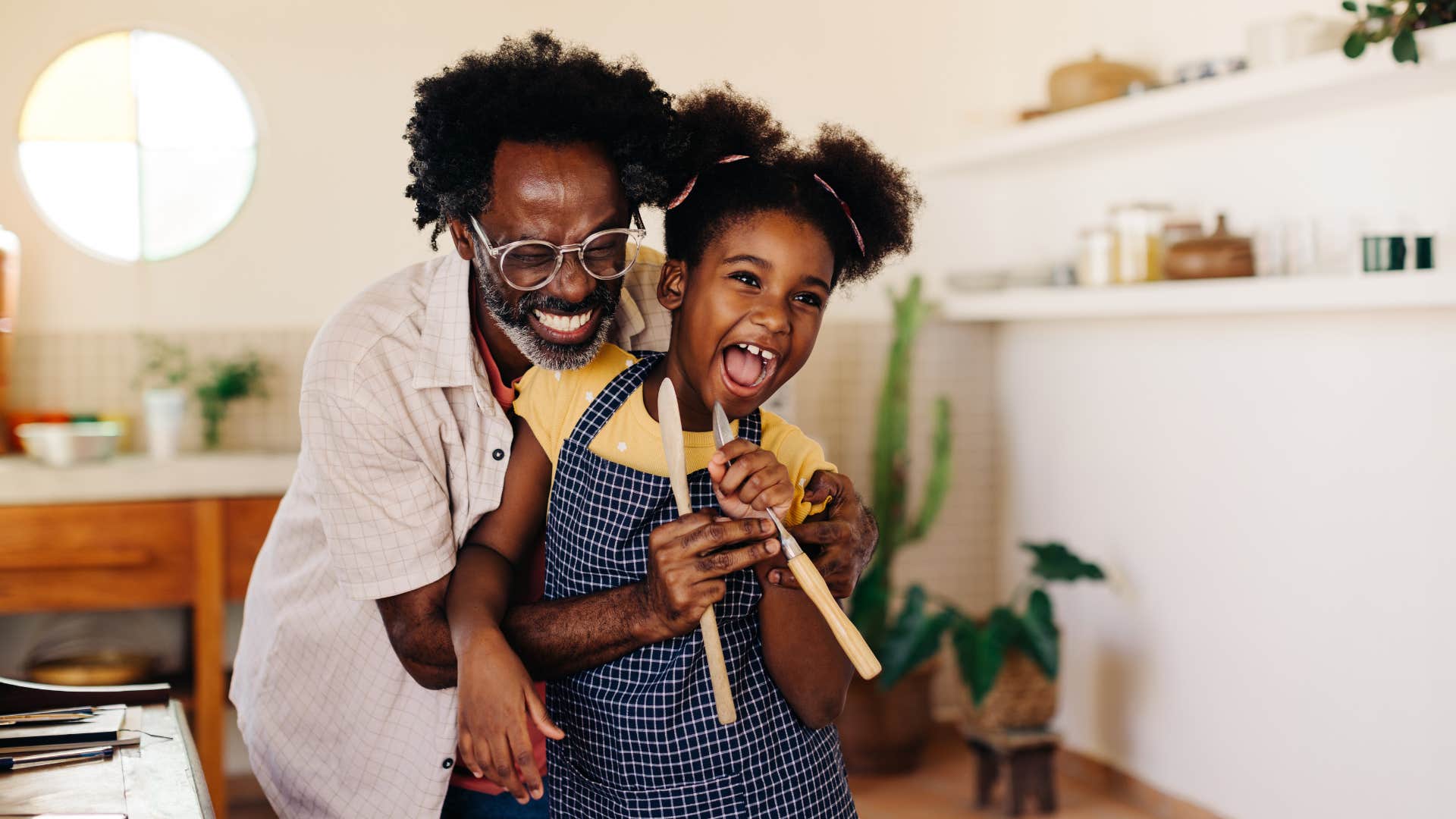The 8 Most Overlooked Life Skills Kids Need Most, According To Parenting Experts
Most parents focus on the big stuff, but these underrated skills actually shape confident, resilient kids.
 Nathan Dumlao | Unsplash
Nathan Dumlao | Unsplash The future is upside down in our uncertain world. Common-sense lessons of yesterday might not apply next year, or even next week. Parents can struggle knowing the skills a kid will need down the road to become competent, compassionate adults.
What's a well-meaning parent to do? What parenting lessons matter in the long run? We asked myriad parenting experts who told us that connecting with your kid is the most productive way to raise kids who will thrive in an uncertain world — and here are a few ways to start.
The 8 overlooked parenting skills that kids need most, according to pareneting experts:
1. Ability to talk about their feelings
 Markus Photo and video via Shutterstock
Markus Photo and video via Shutterstock
One thing parents forget to teach their kids, especially boys, is how to talk about feelings, points out Joanna Schroeder, parenting expert and author of How To Talk To Your Boys. When kids start having big feelings, we simply tell them to settle down or talk them out of their emotions. Instead, we need to listen, hear them out for a few minutes, and then repeat back what we think we're hearing so they feel heard.
You can start with, 'Hold on, I want to make sure I understand you correctly, you're angry your brothers don't want to play the game you want to play.' Let them correct you if you are wrong.
After they feel like you're listening, probe the feelings a bit further to get beyond the surface feelings. Then try something like, "Now that I understand why you're angry, I wonder if you might also be feeling a little left out because that game is for older kids, and it can be hard for you to win. Do you think that's part of it?"
This looks at a situation from a more zoomed-out perspective, so kids are better able to find a solution. In the example, maybe your son can explain to his brothers why he's so angry, that he feels left out and gets frustrated.
They may be more understanding of his reaction than if he'd just stomped his feet or yelled at them. This is a life skill many of us, as adults, could have benefited greatly from learning as kids.
2. Ability to put words to emotions
 PeopleImages.com - Yuri A via Shutterstock
PeopleImages.com - Yuri A via Shutterstock
American psychologist John Gottman the Gottman Institute, recommends helping your child put words and meaning to how they’re feeling. Once children can appropriately recognize and label their emotions, they’re more apt to regulate themselves without feeling overwhelmed.
Try using phrases like, “I can sense you’re getting upset,” or “It sounds like you’re hurt.”Don't: convey judgment or frustration
Sometimes our kids can do or say downright unacceptable things, and it’s hard to understand the emotions that seem unwarranted or irrational. But try putting yourself in your child’s shoes.
Ask questions, seek to understand, and convey to them that you’re on their side, you support them, and you’re there to hold their hand through those moments when things feel overwhelming and tough.
3. Ability to make choices of their own
 MAYA LAB via Shutterstock
MAYA LAB via Shutterstock
Children are always being told what to do, explains family therapist Lianne Avila. This makes them feel like they can never make a choice for themselves, so try and create opportunities for them to make choices of their own.
For example, let your child decide what to eat or have for dinner (within reason). Let them pick out their clothes for school, even if it's not what you would choose.
Give them options for activities, such as letting them decide if they would like to go to the park after school or watch a movie at home. This will help your child feel empowered and build confidence.
4. Ability to empower themselves
 Monkey Business Images via Shutterstock
Monkey Business Images via Shutterstock
For attorney Jennifer Hargrave, the overlooked parenting skill is being focused on preparing their child for life. So often, especially for parents of young children, the primary focus is on protecting the child. But as children grow more independent, parents need to transition from protecting to empowering children to deal with life.
That means teaching them how to deal with loss, grief, forgiveness, and all the uncomfortable feelings they will encounter in life. When parents help children understand these "uncomfortable" feelings (and at times painful feelings) are opportunities for growth to experience life more fully, they are preparing their children for an incredible life.
5. Ability to be self-sufficient
 Inside Creative House via Shutterstock
Inside Creative House via Shutterstock
One of the most overlooked parenting skills is recognizing when kids demonstrate an ability to do it for themselves, says editor and astrologer Aria Gmitter. It's a really hard thing to do, especially if you love your child and want to make them as comfortable as possible. But, the moment a child reveals to you they are curious to accomplish something for themselves, you want to put on your teaching cap and start training them for self-sufficiency.
This starts very young with holding their bottle and putting on their clothes. You see how excited your child gets when they do it themselves. The greatest gift a parent can give to their child is to let them do everything and anything they can do as soon as possible.
If you miss that moment, the child thinks independence and self-sufficiency are options, and two things happen. They start to resent you, and they think your job is to care for them for their entire lives.
However, if you delegate to your child with the mindset that this is life, they are growing up, and they are ready, you'll find out you've raised a kid who loves to do it themselves. They will appreciate the fact that you let them.
6. Ability to regulate emotions
 NDAB Creativity via Shutterstock
NDAB Creativity via Shutterstock
Therapist Dr. Gloria Brame confides that one of the hardest lessons to teach parents is maintaining emotional regulation when their kids are present. Some parents are very good at this, but in what we might consider "troubled homes," I've often found parents see nothing wrong in letting their kids witness all the ugliness an angry adult may contain.
I have counseled people who have awful fights, make divorce threats, and may even show physical aggression in front of their kids. Of course, this can happen in any family. There are households where it's normal for kids to hear parents arguing, cursing, screaming, shoving, and otherwise fighting.
Adults are emotionally tougher than kids: they can move on as if it never happened. But children may develop permanent emotional scars. It upsets their sense of security, and sometimes their trust in their parents.
Kids need to see that their parents can control and regulate their behaviors; otherwise, they may be terrified that their parents could turn on them someday! They need to know their parents are not going to harm each other. They require stability: if their parents are always fighting, does it mean divorce is inevitable? Kids naturally fear abandonment and instability.
Finally, kids often grow up mirroring their parents — it's part of the cycle of abuse. This bodes poorly for their future parenting abilities.
While it's normal for kids to occasionally glimpse adult conflicts, self-regulation when kids are present is a critical skill. Both parents are responsible for showing their kids healthy models of conflict resolution instead of acting like out-of-control children themselves.
7. Ability to handle disappointment
 VAKS-Stock Agency via Shutterstock
VAKS-Stock Agency via Shutterstock
More parents should understand the importance of kids learning how to deal with disappointment, warns author and clinical social worker Michele Weiner-Davis. Instead, to avoid nagging, many parents give in.
Even if they don't give in, parents often engage in lengthy explanations about their reasons for turning down their children's requests, which in turn leads to a cycle of nagging, justifying, more nagging, more justifying. Sometimes a simple "no" is in everyone's best interest.
8. Ability to know and accept limitations
 JLco Julia Amaral via Shutterstock
JLco Julia Amaral via Shutterstock
Remember, your kid doesn't have your wisdom yet, cautions family therapist Caroline Maguire. Your child has had limited life experience, so their perspective is limited. That's why your child needs to help them develop their understanding of life and shape their approach to any situation.
By accepting your child's limitations, you are being the parent your kid needs. Only then can you help them learn, grow, and develop into a healthy, happy individual.
Even as newborns, children show us what they need with little signals. A cry that calls out for a diaper change or another cry that signifies “I am hungry.” But as they get older, children’s codes and requests for mom or dad's help are harder to crack.
When you directly ask your kid, “How are things going?” you will often get very little information. Your child may shrug or say she's “fine” in a monosyllabic response to your inquiry. But don't worry! It's normal to struggle with decoding what your child needs because your child’s signals are often unclear.
For example, your daughter may want your help navigating a fight with a friend at school, but then wants to never speak of it again. Or, your son may want to cuddle on the couch and then the very next day call the same act “babyish.”
As a parent, it's your job to balance these competing and rapidly evolving desires. It's a parenting dilemma as old as time: Moms and dads are challenged with figuring out how to give their kids the space and independence they want while making sure to be the parents their children need.
Will Curtis is YourTango's expert editor. Will has over 14 years of experience as an editor covering relationships, spirituality, and human interest topics.

